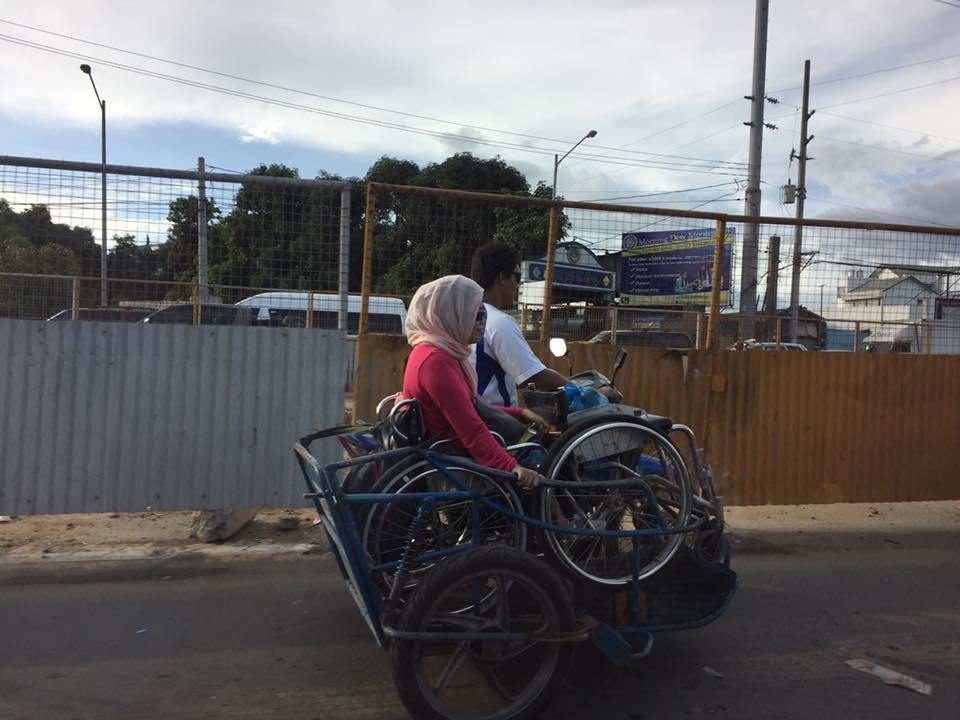8 Reasons the Recent Transport Debacle Should Have Discussed PWD’s Front and Center
Jul 28, 2017 • Tim Henares

Jul 28, 2017 • Tim Henares
Grab, Uber, or taxis? What about buses, trains, jeepneys, and tricycles? How about riding your own bikes or plain walking?
All these transportation options were last week’s hot topic, and it’s well and good that people are becoming more and more aware that there has to be solutions found for the growing traffic problem in the Metro.
That being said, we have overlooked some very important people who are very much affected and relying on every single progressive move we make with regards to transportation: persons with disabilities. It isn’t easy to be in their shoes, to say the least, and in a country that still doesn’t understand the need for PWD access everywhere, they certainly have a huge stake in this dialogue. Here are 8 reasons why.
Let’s begin with the most obvious: last week was Disability Week. It was supposed to be a week for us to be more aware of the plight of the people around us who, through no fault of their own, have to deal with life in a vastly different way than most of us do. If there was a good time to bring their cause to the fore, it should have been last week, in the middle of all these issues.
From Jeepneys that are difficult to access for anyone using canes or crutches and some of them demanding a passenger with these implements pay extra because their crutches take up “extra space” to bus drivers speeding away well before a PWD manages to disembark from their stop, to taxi drivers who specifically refuse PWD’s instead of letting them ride, we are looking at a living hell for these PWD’s in a world of public transpo.
Contrary to what our recent DOT ad may be implying, let’s admit that getting around in the Philippines is not easy if you also happen to own a PWD card. The things we take for granted as able-bodied people should be things we could also bestow on our PWD brethren, simply because it’s the least they deserve: the same opportunities we all have.
Seriously. Why are our stoplights and pedestrian lanes still not friendly for people who can’t see? You would think a sound-based complement to traffic lights would be in place by now, but it still isn’t.
A new build for a tricycle recently came out that allows for a wheelchair to be stored in transit, making tricycles that much more accessible for PWD’s who normally cannot. These developments are so few and far in between that it seems to be important to take the time out to think of simple ideas to facilitate these things and make them possible.
It’s bad enough that we use conditions such as Down’s Syndrome and autism as slurs and insults against people, but because these things are generally not as readily visible as physical disabilities, you can be sure that anyone who has to avail of amenities meant for PWD’s will be yelled at a lot if they don’t “look like” they have a condition.
Imagine being on the autistic spectrum, boarding the PWD section of the LRT, then being told to go out of the LRT because “there’s no such thing” as autism. It can tick anyone off, and here they are, putting up with it on a daily basis.
Plenty of PWD’s who have had the experience of taking multiple forms of transportation have cited that Uber and Grab tend to be very courteous and considerate of their passengers who have these conditions. It also helps that these companies even hire drivers who face their own challenges, such as drivers who are hard of hearing.
While this does not mean that Uber and Grab should be given a pass when it comes to going through the proper motions of registration, it should count for something that they make the lives of our PWD brethren just a little bit better every now and then.
How can we make our transport system be more PWD-friendly? Tell us your thoughts below!
Input your search keywords and press Enter.
